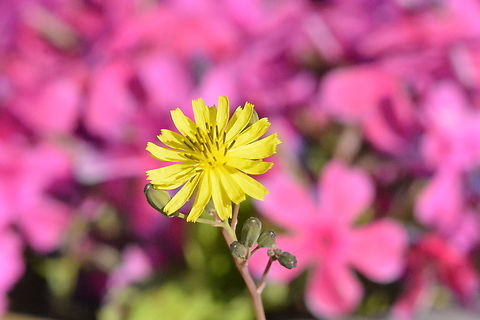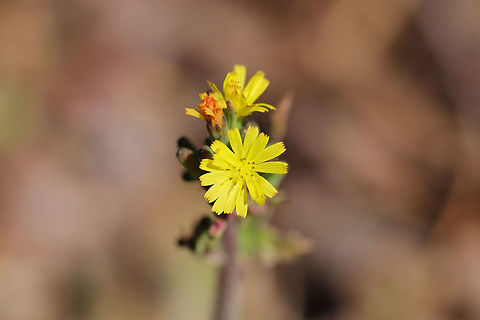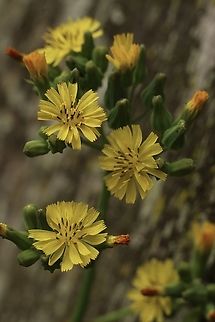
Appearance
It is an annual that produces yellow flowers. In tropical areas, it can bloom year round, while in temperate areas it blooms in late spring and early summer. Plants are variable in height, ranging from 10 cm to 150 cm depending on growing conditions. Stems are usually solitary and erect. Basal leaves are large a pinnately divided. Its fruits are wind dispersed.
Distribution
"Youngia japonica" is native to eastern Asia in China and Japan. However, it has been spread far from its initial range, and is now found as a non-native species nearly worldwide. It is present in Africa, Australia, Europe, North America, and South America. In the United States, it is spreading rapidly, although it is largely restricted to areas in the Southeast. It grows well in response to human disturbance, and is found in areas in areas such roadsides, cultivated fields, and in lawns. In China, it is found in a variety of natural and disturbed habitats. It is known to penetrate into intact natural communities as an invasive species in the United States.
Habitat
"Youngia japonica" is native to eastern Asia in China and Japan. However, it has been spread far from its initial range, and is now found as a non-native species nearly worldwide. It is present in Africa, Australia, Europe, North America, and South America. In the United States, it is spreading rapidly, although it is largely restricted to areas in the Southeast. It grows well in response to human disturbance, and is found in areas in areas such roadsides, cultivated fields, and in lawns. In China, it is found in a variety of natural and disturbed habitats. It is known to penetrate into intact natural communities as an invasive species in the United States.References:
Some text fragments are auto parsed from Wikipedia.